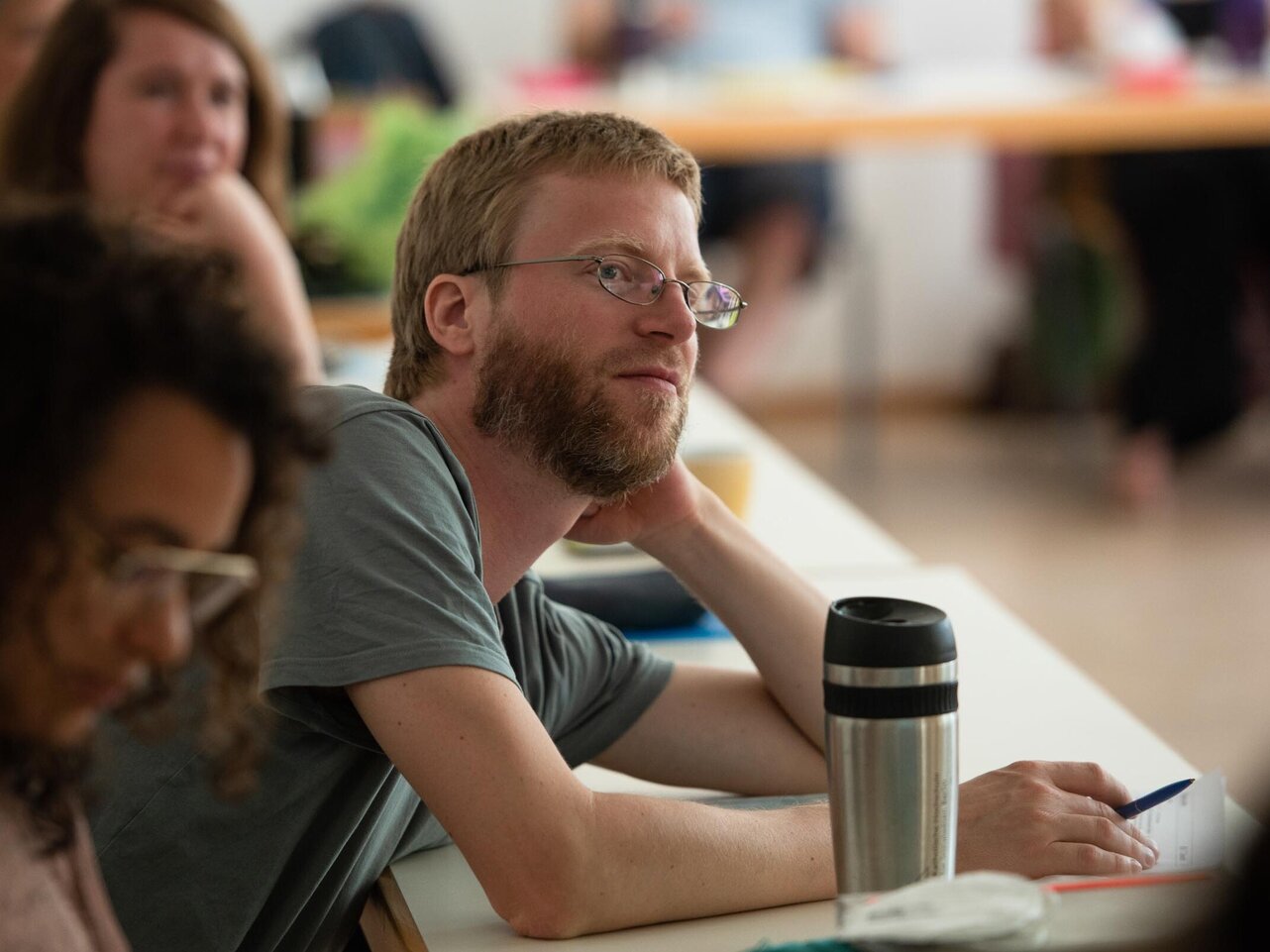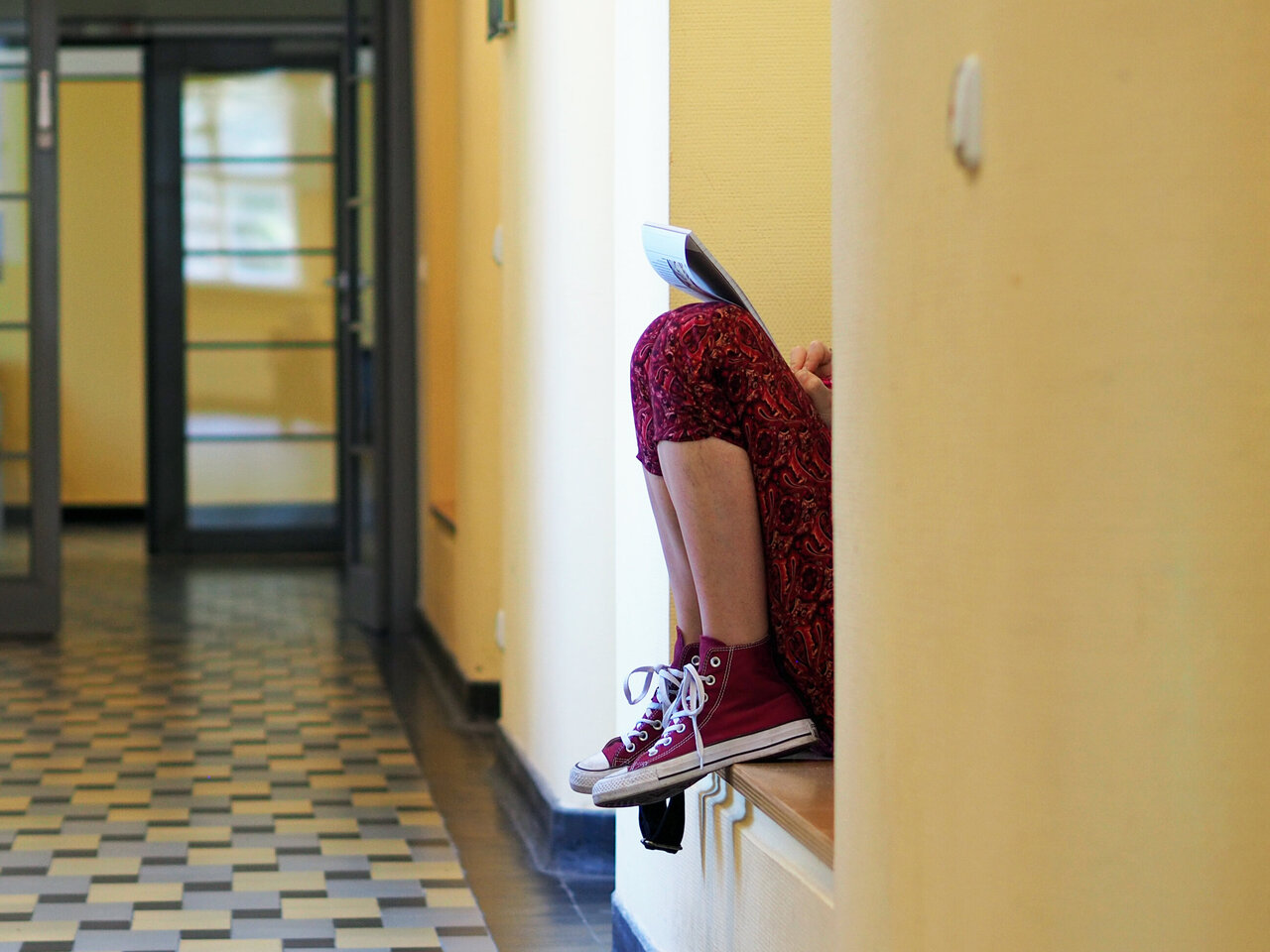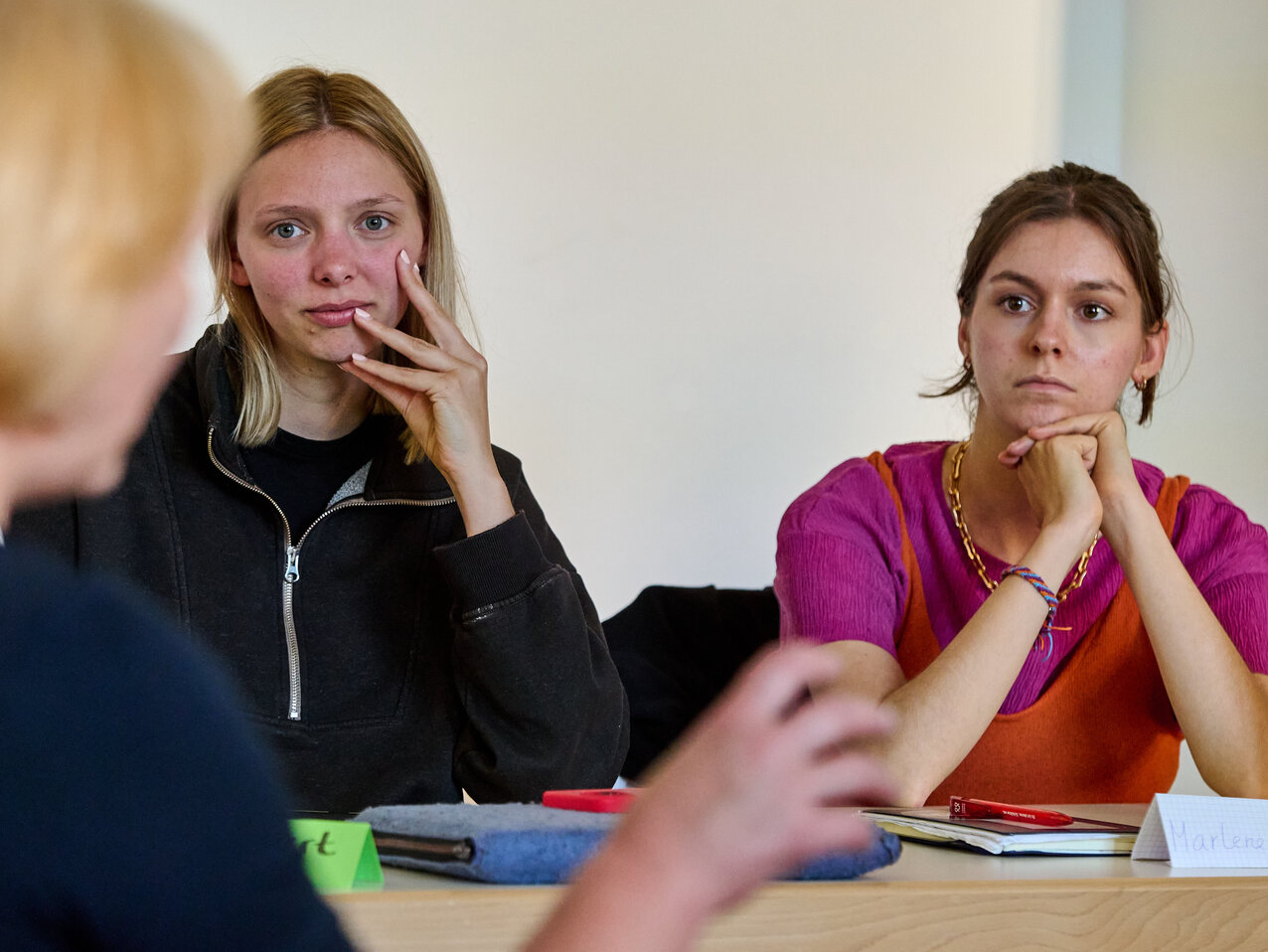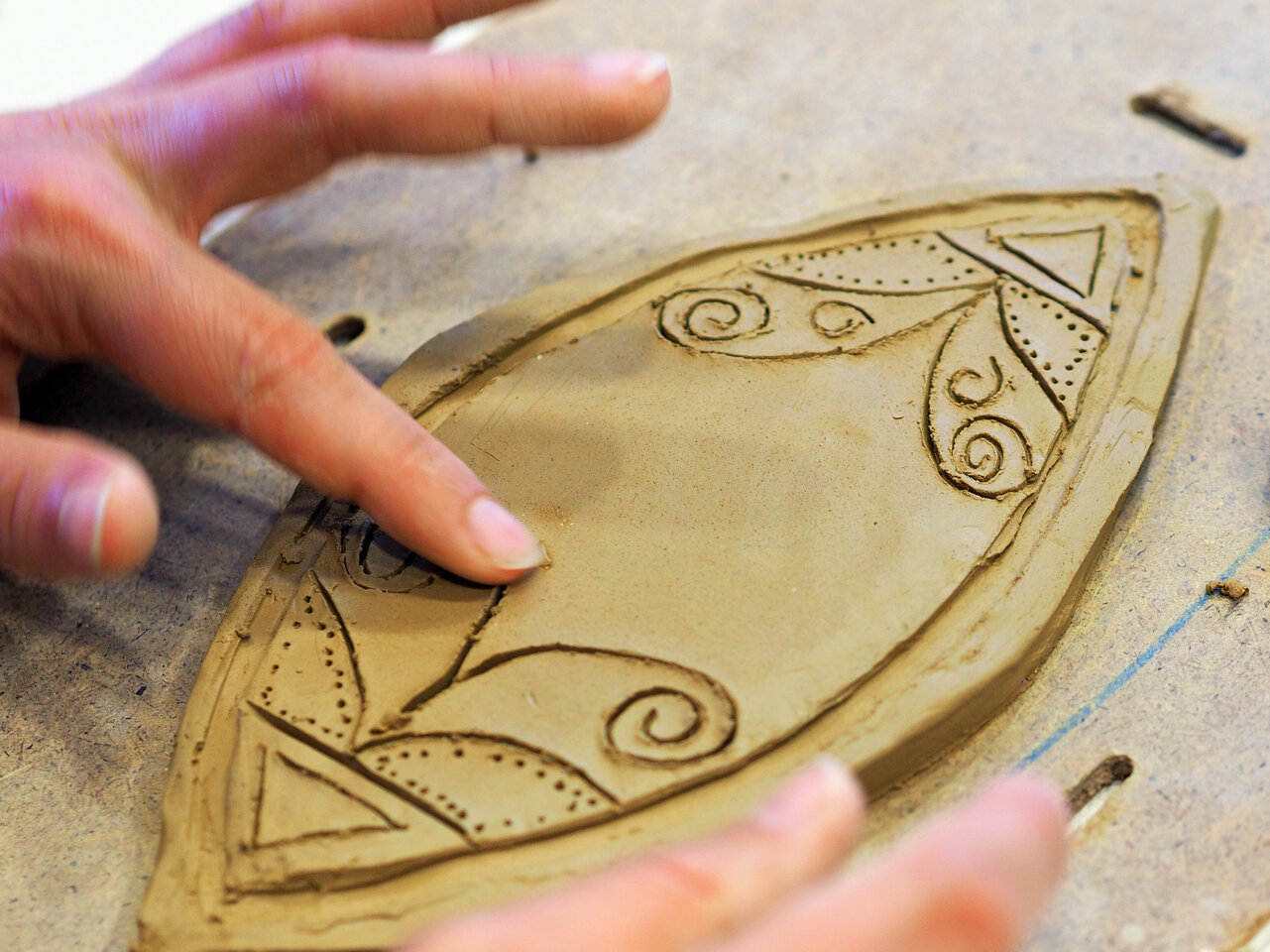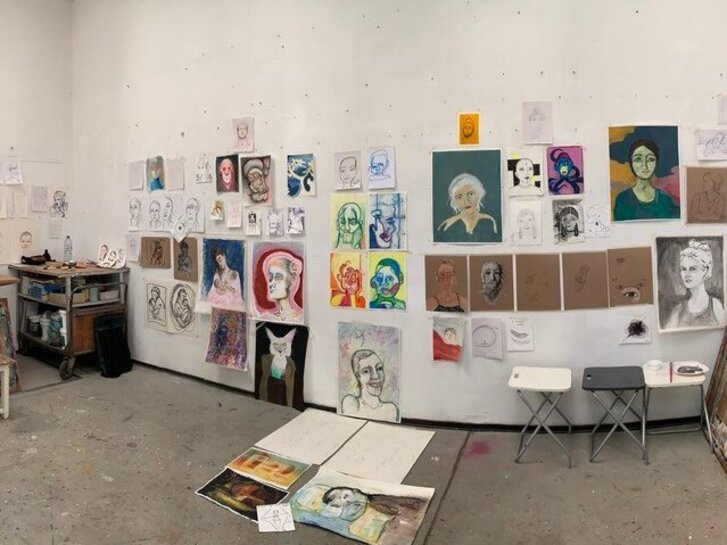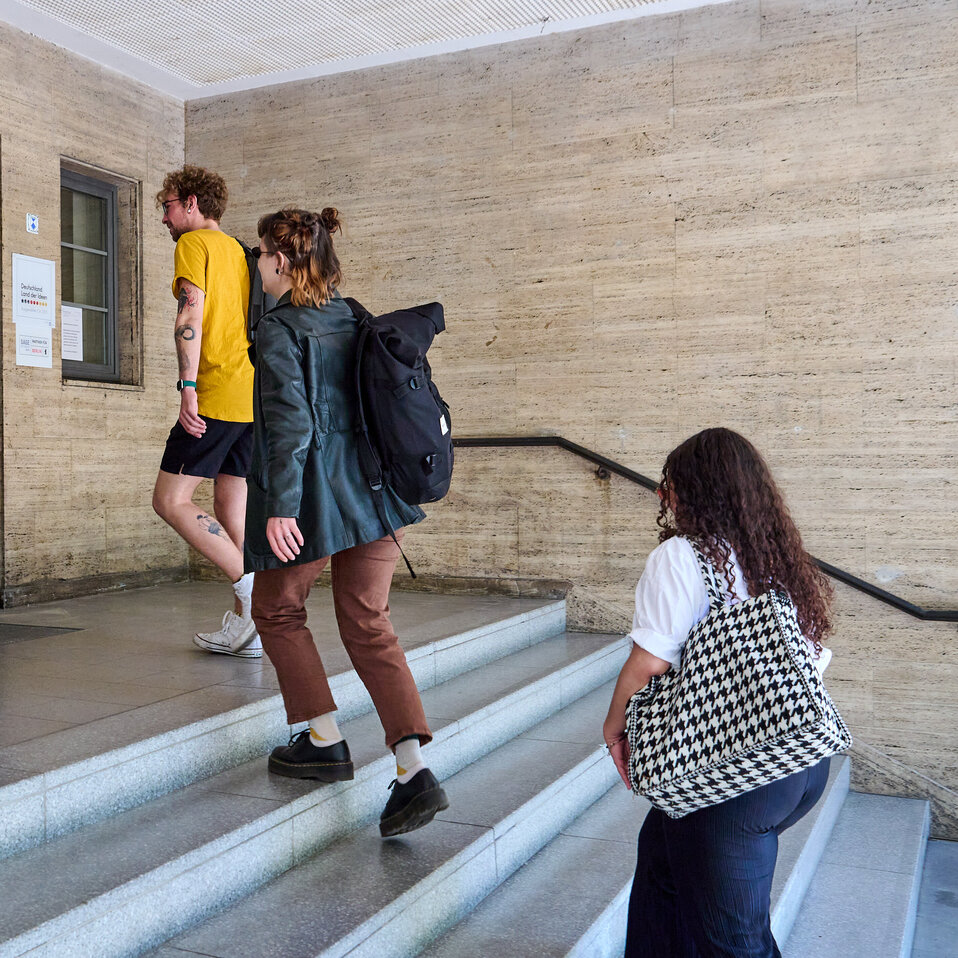Study design therapy/clinical art therapy part-time
Do you want to work therapeutically in a socio-professional field? On the part-time Bachelor's degree programme in Design Therapy and Clinical Art Therapy, you will receive a depth psychology-based education. In small study groups, you will combine artistic training with self-awareness, theoretical learning and practical experience during your studies.
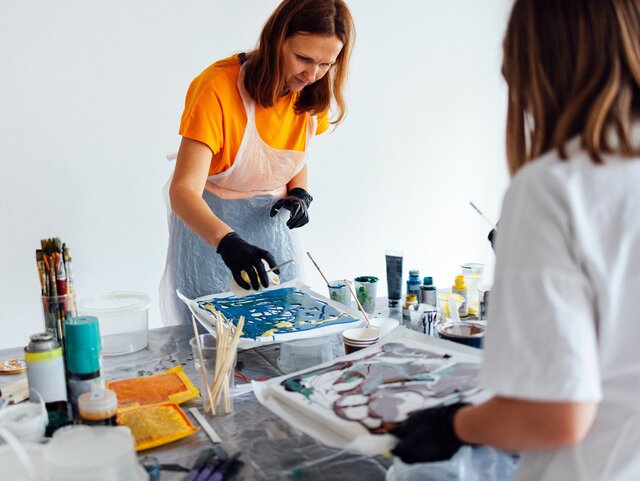
Study Design Therapy and Clinical Art Therapy at the KHSB
If you would like to study Design Therapy and Clinical Art Therapy part-time in Berlin, the KHSB is the right place for you. Here you will benefit from an ideal mix of theory and practice. You will acquire the latest scientific knowledge in design therapy and clinical art therapy as well as related sciences. Equipped with this knowledge, you will gain valuable practical professional experience during your studies.
You will learn to adopt a research-based attitude. This will enable you to critically reflect on and further develop both the profession and the scientific discipline of design therapy and clinical art therapy.
As a design therapist and clinical art therapist, you will make an important contribution to society in the areas of prevention, mental and physical health, therapy and developmental support. The degree offers you a wide range of career prospects in areas with a high demand for specialists.
Design Therapy and Clinical Art Therapy is a degree programme in which you set your own professional focus. On the way to graduation, you will sharpen your personal professional profile. At the KHSB, you will receive the ideal foundation for a targeted career start or your further academic training.
Here you can get an overview of selected contents of the Design Therapy and Clinical Art Therapy degree programme over the course of the semester. We show you the areas of study that are covered in the course of the modularised study programme. Detailed information on the specific teaching and learning content of each semester can be found in the module handbook, which you can find under "Organisational matters" below.
5. - 7th semester
- Applied art therapy in selected contexts of design therapy/clinical art therapy.
- Professional relationship design in design therapy/clinical art therapy
- Special methods of design therapy/clinical art therapy
- Legal and professional principles
- Reflection on one's own professional identity
- Writing the Bachelor's thesis
Interdisciplinary learning
The degree programme examines and teaches questions of art and design therapy from different scientific perspectives in small learning groups. The programme provides you with knowledge and skills in art and design therapy and social psychiatry to enable you to base and reflect on your professional work. Special emphasis is placed on your own self-awareness and on expanding your anthropological and ethical reflection skills
Theory and practice in proven cooperation
In this degree programme, you will learn in a consistently interdisciplinary, problem-oriented and case-based way. Academic learning and artistic-therapeutic practical experience complement each other profitably and you also benefit from flexible learning locations and times.
A multi-professional team of professors, teaching therapists, artists, psychologists, psychotherapists and doctors will provide you with first-hand knowledge of the latest scientific findings in depth psychology and therapy research, psychiatry, social psychology, adult education, art and aesthetic education.
Artistic-therapeutic identity formation
During your studies, you will consolidate your own artistic point of view through artistic training and free studio work. Your self-awareness will strengthen your therapeutic identity and confidence in dealing with the media of fine art. You will learn to confidently support people in their emotional processing and maturing processes. In individual and group supervision sessions, you will critically reflect on your professional experiences and competences and thus develop a consolidated professional identity.
Programme-specific admission requirements
In addition to the general
- Proof of vocational training or studies generally in the medical, social, educational or artistic field.
- Proof of professional activity in the field of design therapy/clinical art therapy during the course of study or proof of the opportunity to work in art therapy for at least four hours a week or 16 hours a month during the course of study; in exceptional cases, the art and design therapy practice can also be provided as a semester internship of at least 92 hours.
- Proof of completed or commenced self-experience in art and design therapy totalling 200 hours; 140 hours of this must be depth-psychology-based art and design therapy in a group, in the form of a basic course/basic modules, or equivalent.
- Proof of completed or commenced depth psychology-based self-awareness totalling 100 hours. Of this, 60 hours must be in the form of depth psychology-based individual therapy.
- Proof of own artistic activity by submitting a portfolio of own works.
- Successful completion of an admission interview.
Expertise
With this degree programme, you will acquire the qualifications you need to work successfully in the field of design therapy/clinical art therapy. Equipped with specialist, practical and personal skills, you can start your career straight after graduating.
After graduating, you will have:
- Sound knowledge of the practical science of design therapy/clinical art therapy,
- a wide range of methodological skills in design therapy/clinical art therapy,
- a sharpened individual and professional profile,
- important knowledge in the related sciences. In the social and health sciences, this includes psychology and social psychiatry, pathology and psychotherapy sciences and depth psychology models,
- Knowledge of art, ethics and law,
- a strengthened artistic identity,
- a pronounced ability to understand and reflect the feelings and moods of other people,
- the ability to independently plan and implement art and design therapy treatments and counselling,
- the ability to reflect on and communicate the processes with the teams and other stakeholders.
Fields of work
- Child and youth work such as developmental support and therapy,
- Social psychiatry,
- Psychosomatics and psychotherapy,
- Oncology,
- Gerontology,
- Offender support
- Work with families,
- Work with people who have experienced flight and migration,
- Work with people with trauma-related disorders,
- Outpatient art and design therapy studio programmes.
Facilities
- Outpatient, day-care and inpatient healthcare facilities, ,
- Hospitals,
- Psychiatric centres,
- Addiction support centres,
- Youth welfare centres,
- Educational institutions such as daycare centres and schools,
- Correctional centres,
- Family centres,
- Geriatric treatment centres,
- own practice in accordance with legal requirements,
- and much more.
Further qualification
The Bachelor of Arts degree paves the way for further qualification with a postgraduate Master's programme. With one of our Master's programmes, you can specialise further in your field, qualify for management positions and also open up the path to a doctorate.
FAQ Design and clinical art therapy
No! As a state-recognised university of applied sciences, the Catholic University of Applied Sciences Berlin (KHSB) is not a private university, but a university under church sponsorship. In principle, anyone can study at the KHSB. The denominational affiliation or church membership of students is irrelevant. You are all very welcome.
Programme management and coordination
The programme director and programme coordinator are your contacts, particularly for technical questions relating to the dual study programme. Write to us or arrange a telephone or personal appointment with the degree programme coordinator Ulrich Genehr.


